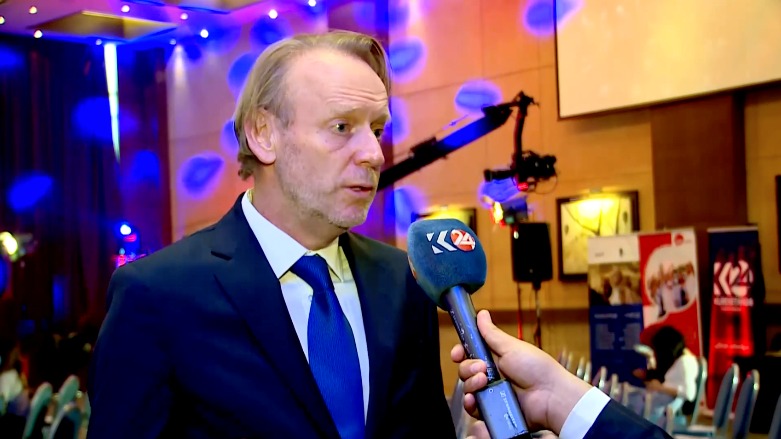Netherlands to send 3 observer teams to Kurdistan Region for Iraqi election

ERBIL (Kurdistan 24) – Hans Akerboom, the Dutch Consul General to the Kurdistan Region, told Kurdistan 24 in an interview on Wednesday that his consulate will deploy three teams to the autonomous region of Iraq as part of the EU election observation mission for the upcoming national election in October.
Underlining the importance of the election process, Akerboom said that the EU is sending around 80 observers in total to various provinces of Iraq.
“For example,” he explained, “we as the Netherlands, we have here in the Kurdistan Region three teams and we try to observe (the elections) in three provinces; in Duhok, Sulaimani, and in Erbil.”
“So, as the Netherlands we are active, observing the elections, but we know for sure that this is a very good step in the democratic process of Iraq.
Moreover, the Dutch Consul said there was a meeting this week with military advisers and diplomats from UK, US, Germany, and the Netherlands about the ongoing Peshmerga Reform Program, with the stated objective of bringing the forces under a fully unified command instead of particular units being associated with leading political parties.
Constructive meeting with the military advisers & diplomats from UK, US, Germany and the Netherlands about #Peshmerga Reform Program. Important to discuss how the implementation is progressing and how we can take the reforms a step further. Thanks @DavidHuntFCDO for organising. pic.twitter.com/2vLb0CSoMV
— Hans Akerboom (@jtmakerboom) September 26, 2021
The Netherlands, the US, the UK, and Germany form the unique Multi-National Advisory Group (MNAG) that enthusiastically supports the project to remove local politics from the Peshmerga forces’ chain of command.
Read More: Dutch colonel advocates for Peshmerga reform as he departs Kurdistan Region
Akerboom said these four countries meet every two months on the Consulate General level, “to sit together and we discuss the progress, because, of course, it's very important for us that the Peshmerga reform will be there because you never know what will happen in future.”
The diplomat concluded, “And we have to be prepared for the bad things, it's also more efficient to have this reform program for the Peshmerga.”